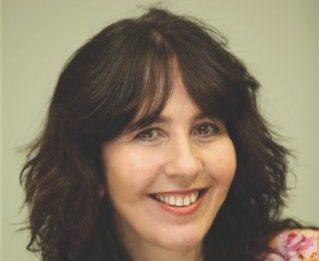Voices
Discovering the seam of Soweto
When we set out to find out if there was a Jewish connection to Soweto, we knew we would find something interesting. Isn’t that always the case?

PETA KROST MAUNDER
However, we had no inkling just how much the Jewish community made up the inner seam of Soweto.
The reason we decided to do this was because this long weekend includes 16 June, Youth Day, and the commemoration of the 1976 Soweto uprising.
Every year, we make an attempt to bring you some new and interesting insights. So, Jordan Moshe went along with photographer Ilan Ossendryver – who also happens to be a tour guide – to Soweto.
As more and more was revealed, we felt a real sense of pride. Professor Selma Browde was behind Soweto’s electrification. The Freedom Charter was signed on the property of a Jewish company with lots of Jewish people involved.
This is such a testimony to who we are. It’s not to say that we can claim that the community was at the heart of the anti-apartheid struggle, that wouldn’t be true. However, what it does mean is that a good percentage of individual Jews were integrally involved.
It speaks to our diversity within the community, and just how much we are a part of this crazy, wonderful mélange of a country.
I also loved the fact that when Jewish people lived in Kliptown, they lived closely and happily with their Muslim, Black, Indian, and Coloured neighbours. They all kept their religion and culture, but lived side-by-side as a community.
That is how we are in this country. We are different but the same.
We play our part wherever we can, and do our best to develop South Africa.
In the story about Tanya Cohen leaving Business Unity South Africa (page 11), we meet an accomplished Jewish woman who has been deeply involved in helping business to hold the economy and the country together over a very rough patch.
We do our best, but for some we will always be “Zionists”. They can’t see us as part of the network of this country because we support Israel.
I always wanted to believe that was why they alienated us from the rest of the country. But, my interview with Yogev Karasenty, the director for combatting anti-Semitism in the Israeli ministry for diaspora affairs, revealed that this was not the case. Anti-Zionism is a real form of anti-Semitism. Of course, it would be because Israel is a Jewish state.
So, they alienate us by vilifying the Jewish state, to which we are intrinsically linked by virtue of who we are.
This anti-Semitism has been given a name – new anti-Semitism – and a clear definition, which Karasenty clarified for us on page 3.
This is the main form of anti-Semitism that we face in South Africa.
What is fascinating is that organisations like Boycott Divestment Sanctions (BDS) make such a song and dance about not being anti-Semitic that they almost have some of us hoodwinked.
Part of the dilemma created by this racism is that we start to think that we are making too big a deal of the negativity directed at us.
The truth is that it isn’t as widespread as some would have us believe, but thanks to BDS and its hold on certain members of government and vocal “opinionistas”, this racism is powerful here.
It has also found its way into left-wing circles in this country, as Ivor Chipkin points out in his opinion piece on page 7.
For so long, this murky hatred and racism has been cleverly disguised as anti-Zionism – to the point of some Jewish people wondering whether it is legitimate or not.
A handful or so of left-wing Jewish people have bought into it enough to support BDS. By their apparent self-hatred, they give BDS credibility. How I wish they would do some genuine research about who they are support and condemning … Perhaps they could go to Israel and see for themselves.
Some anti-Israel rhetoric can be convincing as it flies close to the winds of what is happening in Israel, just taking it to the extreme. At other times, the imaginative creation is of a country that is the most abhorrent place in the world, whose people kill and maim women and children daily just for fun. Or so the rhetoric goes.
It gets worse and sicker, but so many lap it up as the truth.
The truth is that the crazier the rhetoric, the easier it is to interpret it as clear anti-Semitism.
The ministry for diaspora affairs has a tool that was formulated partly by former Jewish Agency boss Natan Sharansky. Its simplicity makes it easy to differentiate new anti-Semitism from fair and justified criticism of Israel and the Israeli government.
Now that it is so clearly explained, I believe it will be easier for us to deal with.
Shabbat Shalom, and have a great Youth Day!